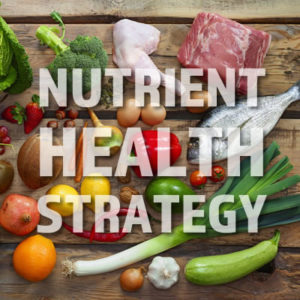Vitamin B3
Vitamin B3 (niacin) is essential to skin, digestive and mental health. It supports the functions of more than 200 enzymes in the body. Vitamin B3 is a combination of two chemicals, nicotinic acid and nicotinamide. The body breaks these chemicals down to make two chemicals called NAD and NADP which play a role in a variety of chemical reactions and energy transfers inside cells.
Vitamin B3 it is water soluble and excess amounts leave your body through your urine. This means that you need a regular supply of niacin in your diet.
Your body uses tryptophan to make vitamin B3 in the liver (it needs B6 and iron). 60mg of tryptophan converts to 1mg of vitamin B3. Tryptophan also makes serotonin, a neurotransmitter that plays a role in regulating sleep and moods. A deficiency in tryptophan can lead to insomnia, depression, anxiety, irritability and unexpected weight loss or gain.

Vitamin B3 niacin is though to be an important treatment for dangerously high cholesterol levels. Studies have also shown that vitamin B3 can boost levels of the good HDL cholesterol and lower triglycerides, whilst lowering the bad LDL cholesterol. Vitamin B3 is commonly prescribed in combination with statins for cholesterol control.
How much vitamin B3 do I need?
The RDA for vitamin B3 is 16 mg/day for men and 14mg/day for women. A balanced diet should easily cover this requirement but it's advisable to take a B complex supplement or a multivitamin. The popular Centrum for men contains 16mg as niacinamide.
Tryptophan intake
Sunflower seeds and walnuts have very high tryptophan content. 60 mg of tryptophan to make 1 mg of niacin. With the highest dose of the amino acid per serving, pumpkin seeds provide 110mg per 30g serving, walnuts contain over 50mg of L-tryptophan per 30g serving
Vitamin B3 Foods
Turkey (100g): 32mg
Nutritional yeast (1tsp): 10mg
Chicken breast (100g): 8.9mg
Peanuts (1 cup): 21.9mg
Mushrooms (1 cup): 7.6mg
Liver (50g): 11.9mg
Tuna (100g): 13mg
Green peas (1 cup): 3mg
Grass-fed beef (100g): 8mg
Sunflower seeds (1 cup): 3.8mg
Milk (500ml): 6mg
Potato (medium): 4mg
Vitamin B3 intake strategy
Our advice is to take a vitamin B complex supplement or a multi-vitamin that contains B3. It's advisable to get a whole-food intake as well, turkey, nutritional yeast, chicken, tuna and liver all contain lots of B3 and these are all nutrient dense foods that will transform your health.
Adequate intake: 16mg per day.
Theraputic dose: Under 35mg.
Upper tolerable limit: 35mg+ can cause some flushing.
Notes: RDA should be achieved via food, but B supplements are cheap and effective.
Sources: ncbi.nlm.nih.gov, hal.archives-ouvertes.fr

